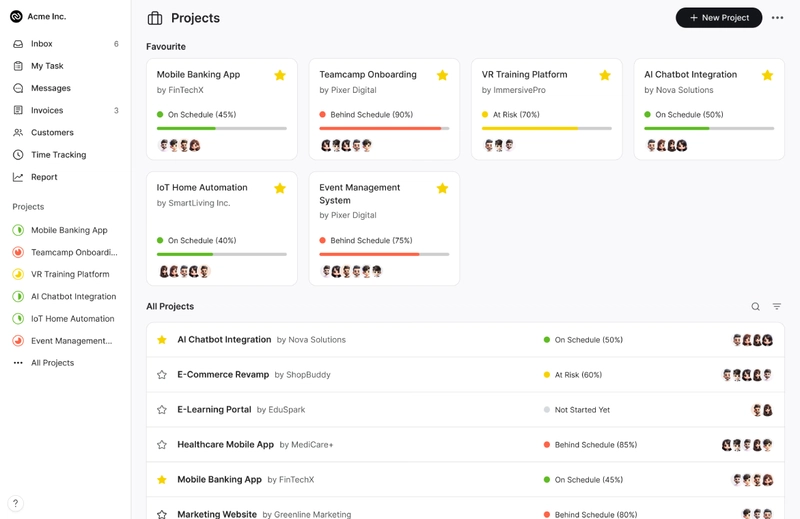Async First: How 7 Remote Dev Teams Ship Faster Than Office Teams
Office teams move faster than remote teams. Everyone knows this.
Yet data from 7 remote development teams tells a different story. These teams ship features 40% faster than their office counterparts. They deploy code 60% more frequently. Bug resolution drops by 35%.
The secret? They reject real-time collaboration. They embrace async-first development.
1. Problem: Constant Interruptions Kill Developer Productivity
The Hidden Cost of Office Distractions
Office developers lose 23 minutes after each interruption. Slack notifications ping every 6 minutes. Impromptu meetings break deep work sessions. The result? Developers spend just 1.8 hours daily in focused coding.
Solution: Create Protected Deep Work Blocks
Remote teams using async workflows eliminate 80% of these disruptions. They batch communications. They set focus hours. They communicate in writing instead of real-time chat.
Implementation:
- Turn off notifications during coding sessions
- Schedule specific times for checking messages
- Use “Do Not Disturb” modes during deep work
Find Your Remote Teams Productivity Solution here
2. Problem: Time Zone Coordination Slows Development
The Meeting Bottleneck Challenge
Global teams struggle with scheduling conflicts. Developers wait hours for approvals. Code reviews get delayed across time zones. Projects stall while team members sleep.
Solution: Embrace Time Zone Diversity as an Asset
Team A at a fintech startup spans three continents. Their async approach creates a 16-hour development cycle. Code review happens while developers sleep. Features progress around the clock.
Framework:
- Hand off work between time zones
- Document decisions for sleeping team members
- Create overlap windows for urgent discussions only
3. Problem: Endless Meetings Reduce Coding Time
The Meeting Trap Reality
Development teams average 23 hours weekly in meetings. Standups run long. Planning sessions drag on. Developers code in fragments between calendar blocks.
Solution: Replace Meetings with Async Updates
GitLab operates with 1,300+ remote employees. Their async-first approach eliminates most synchronous meetings.
Proven Methods:
- Written standup updates replace daily calls
- Async decision-making through documented discussions
- Video recordings for complex explanations
4. Problem: Knowledge Gets Lost in Verbal Communications
The Documentation Gap Crisis
Important decisions happen in hallway conversations. Tribal knowledge stays in people’s heads. New team members struggle to understand context. Code reviews lack historical reasoning.
Solution: Document Everything as Default
Stripe’s remote engineering team documents every decision. They write design docs before code. They record architectural discussions.
Results Achieved:
- 45% faster feature delivery
- 70% fewer alignment meetings
- 90% of decisions made asynchronously
5. Problem: Code Quality Suffers Under Pressure
The Rush to Ship Dilemma
Fast-paced office environments push code through quickly. Reviews get rushed. Testing gets skipped. Technical debt accumulates rapidly.
Solution: Implement Thorough Async Review Processes
Automattic’s 2,000+ employees across 95 countries ship code continuously while maintaining quality.
Quality Framework:
- Comprehensive written code reviews
- Async testing protocols
- Documentation requirements for all changes
6. Problem: Remote Teams Feel Disconnected and Isolated
The Collaboration Confusion
Remote developers worry about missing important discussions. They feel excluded from spontaneous decisions. Team bonding suffers without office interactions.
Solution: Build Intentional Async Connection
Buffer’s engineering team publishes internal metrics. Their async approach creates unprecedented transparency.
Connection Methods:
- Public roadmaps everyone can access
- Async decision logs with reasoning
- Optional synchronous social sessions
7. Problem: Project Visibility Gets Lost Without Constant Check-ins
The Status Update Struggle
Managers demand constant progress reports. Developers spend time explaining work instead of doing work. Project status becomes unclear without frequent meetings.
Solution: Create Transparent Async Workflows
Zapier’s 500+ remote team members follow strict async protocols. They maintain visibility without constant interruptions.
Visibility Systems:
- Written project briefs with clear milestones
- Async progress tracking in shared tools
- Regular written updates replacing status meetings
8. Problem: Decision-Making Slows Without Face-to-Face Discussions
The Consensus Paralysis Problem
Teams struggle to make decisions asynchronously. Discussions drag on endlessly. Important choices get delayed waiting for everyone’s input.
Solution: Establish Clear Async Decision Frameworks
Doist’s async-first culture eliminates urgency addiction through structured decision-making.
Decision Process:
- 48-hour decision windows with clear deadlines
- Written decision criteria shared upfront
- Documented outcomes with reasoning
9. Problem: New Team Members Struggle to Onboard Remotely
The Knowledge Transfer Gap
New developers can’t tap senior colleagues on the shoulder. They miss contextual knowledge. Onboarding takes longer without informal learning opportunities.
Solution: Create Comprehensive Async Onboarding
Toggl’s remote team eliminates synchronous meetings while maintaining excellent onboarding.
Onboarding Structure:
- Complete written documentation libraries
- Recorded code walkthrough sessions
- Mentorship through async communication channels
Find Your Remote Teams Async Solution here
The Async Advantage: Why Remote Teams Outperform
Deep Work Wins Over Constant Interruptions
- Office developers lose 23 minutes after each interruption. Remote teams using async workflows eliminate 80% of these disruptions.
- GitHub’s 2024 Developer Survey reveals remote developers spend 3.2 hours daily in deep work. Office developers manage just 1.8 hours. The difference shows in shipping velocity.
Time Zone Diversity Becomes a Superpower
- Team A at a fintech startup spans three continents. Their async approach creates a 16-hour development cycle. Code review happens while developers sleep. Features progress around the clock.
- Office Team B works 8 hours daily. Team A effectively works 16 hours daily across time zones. The math is simple.
7 Remote Teams That Cracked the Code
Case Study 1: Stripe’s Documentation-First Culture
Stripe’s remote engineering team documents every decision. They write design docs before code. They record architectural discussions.
Results:
- 45% faster feature delivery
- 70% fewer alignment meetings
- 90% of decisions made asynchronously
💡
Key Method: Every code change includes documentation updates. No exceptions.
Case Study 2: GitLab’s Transparent Workflow
GitLab operates with 1,300+ remote employees. Their async-first approach powers their development velocity.
Implementation:
- All discussions happen in issues
- Video calls are recorded and transcribed
- Decisions are written down immediately
💡
Outcome: 2,000+ monthly releases with 99.9% uptime.
Case Study 3: Automattic’s Distributed Excellence
WordPress.com’s parent company runs entirely remote. Their 2,000+ employees across 95 countries ship code continuously.
Async Framework:
- P2 blogs replace meetings
- Code reviews happen asynchronously
- Design discussions use visual documentation
💡
Result: 40% higher productivity than industry average.
The Complete Async Implementation Roadmap
Week 1: Identify Your Team’s Pain Points
- Audit current meeting time and interruption patterns
- Survey team members about productivity blockers
- Document existing communication inefficiencies
Week 2: Implement Core Async Tools
- Set up documentation systems for decisions
- Create async communication channels with clear guidelines
- Establish response time expectations for different message types
Week 3: Optimize and Measure
- Refine async workflows based on initial feedback
- Track velocity metrics before and after changes
- Address resistance and provide async communication training
Week 4: Scale Successful Practices
- Document proven async processes for team replication
- Create templates for common async interactions
- Establish long-term success metrics and review cycles
Essential Tools for Async Development Success
Communication and Documentation
- Notion: Centralised knowledge base
- Twist: Organised async conversations
- Loom: Quick video explanations for complex topics
Project Management and Tracking
- **Teamcamp:** Complete remote team project management
- Linear: Developer-focused issue tracking
- GitHub Projects: Integrated development workflows
Measuring Your Async Transformation
Productivity Indicators
- Focus Time: Increase from 1.8 to 3+ hours daily
- Cycle Time: 40% reduction in feature delivery time
- Meeting Hours: 60% decrease in synchronous communication
Quality Metrics
- Bug Rate: 35% reduction in post-deployment issues
- Code Review Coverage: Improved thoroughness through async reviews
- Documentation Quality: Complete context for all decisions
Conclusion: Transform Your Development Velocity
Seven remote teams proved async-first development works. They solved the core problems that plague office teams. They ship faster while maintaining quality. They create sustainable work cultures.
The evidence is overwhelming. Async methodologies eliminate interruptions. They leverage time zone diversity. They create comprehensive documentation. They improve code quality through thorough reviews.
Your team faces the same problems these successful teams solved. Constant interruptions fragment your focus. Meeting overload reduces coding time. Knowledge gaps slow development. Poor visibility creates confusion.
Teamcamp’s remote team solution addresses these exact challenges. It provides async project coordination across time zones. It maintains visibility without constant meetings. It helps teams implement proven async workflows.
Start your async transformation today. Begin with one problem area. Implement the proven solutions. Measure the results. Scale what works.







